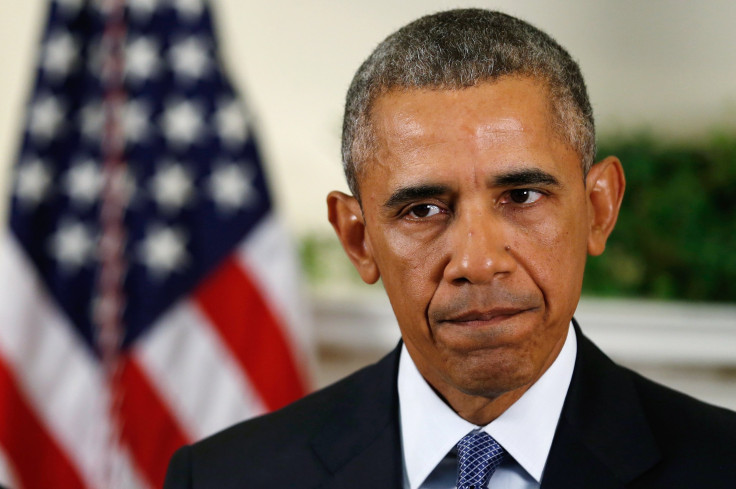Military Budget 2016: President Obama Vetoes National Defense Authorization Act

U.S. President Barack Obama vetoed Thursday the 2016 defense budget, a $612 billion bill proposed by Congress that the president said undermines strict spending caps imposed on other government departments. The budget would rely on a largely unregulated fund to pay for defense items. After both the House and Senate passed their versions of the National Defense Authorization Act earlier this year using the $38 billion Overseas Contingency Operations Fund to compensate for spending caps, Obama vowed he would unequivocally veto the bill.
The president has threatened to do this every year since 2009, but had not actually gone through with it until Thursday. The point of contention for Obama this year was not about one piece of military equipment or a particular defense policy, but instead how the entire government gets funded. Thursday's veto was designed to make a bigger point about possible sequestration, or automatic spending cuts, across all government departments. In essence, Obama was trying to tell Congress the only way to increase the defense budget is to lift all spending caps. Congress probably won't have the required two-thirds support to override Obama's veto.
"The concerns that we've expressed about it is it advocates essentially the use of a slush fund for funding critically important national security priorities," White House Press Secretary Josh Earnest said Monday after the final Congressional version of the bill was signed by outgoing Speaker of the House John Boehner. "We believe that's utterly irresponsible."
The contingency fund, also known as the war fund, is a limitless pot of money meant for fighting wars abroad like Iraq and Afghanistan without being burdened by the larger squabbles between the White House and Congress over domestic spending. The 2016 base budget would have provided the Pentagon with $534.3 billion, up $38.2 billion from the previous fiscal year. The Overseas Contingency Operations budget was $50.9 billion, a decrease of $13.3 billion from last year. In all, the Pentagon would have had about $25 billion more to spend than it did in fiscal 2015, according to the Department of Defense.
While Obama and Congress agree on the value of the overall bill for 2016, the president and the Pentagon are unsatisfied with how Congress came to its figure. Congress, which is currently led by Republicans, wants to keep the sequestration in place. However, they still want to spend more on defense, hence the use of the overseas contingency fund, which is unaffected by sequestration and has very little oversight.
Obama claimed that was unfair to other government departments forced to respect the budget caps that have no alternative fund to dip into. Obama would prefer to see all government spending caps lifted and the country run on an agreed upon budget. Budget caps were first imposed through the 2011 Budget Control Act, which arose after the White House and Congress could not agree on raising the country's debt ceiling.
.@POTUS agenda today: 1) meet with Pakistan on nuke security & counterterrorism. 2) Veto bill providing for nuke security & counterterrorism
— House Republicans (@HouseGOP) October 22, 2015
Defense Secretary Ashton Carter has echoed Obama's message by pointing out that any defense items funded using the overseas pot will only last one year, meaning that long-term planning, a crucial element to defense, will not be possible. "Without a negotiated budget solution to which everyone finally agrees, we will again return to sequestration-level funding, reducing discretionary spending to its lowest real level in a decade. Members of both parties agree that this will harm national security," Carter wrote Tuesday in a Wall Street Journal opinion piece.
If the budget cannot be agreed upon by Jan. 1, some Pentagon spending will be stalled. A function known as continuing resolution will keep most of the Defense Department operating on 2015 budgetary levels, but will prohibit the start of new weapon programs and delay much-needed military reforms that will hurt pensions and military personnel pay.
While a resolution seems far off at this stage, the situation has been made more difficult by Boehner's decision to leave congress, as he was a pivotal part of the negotiations. Rep. Paul Ryan, R-Wisc., has announced his desire to run for speaker, but that vote won't come until next week, leaving national security and defense planners bracing themselves for a potentially difficult year ahead.
© Copyright IBTimes 2024. All rights reserved.






















